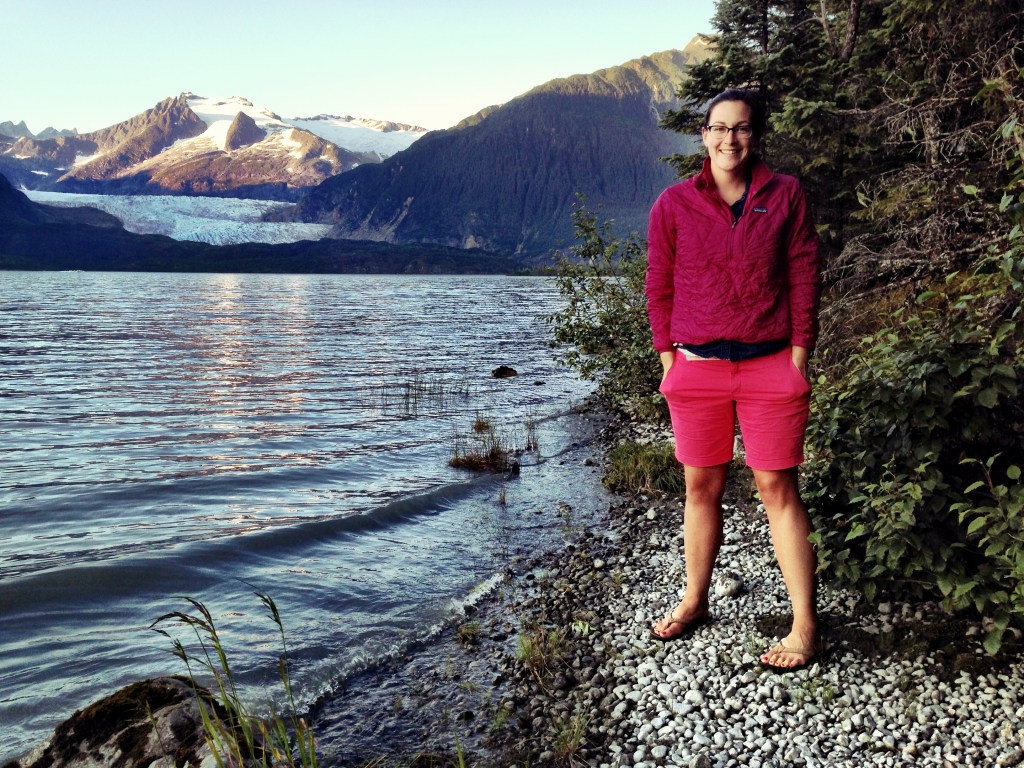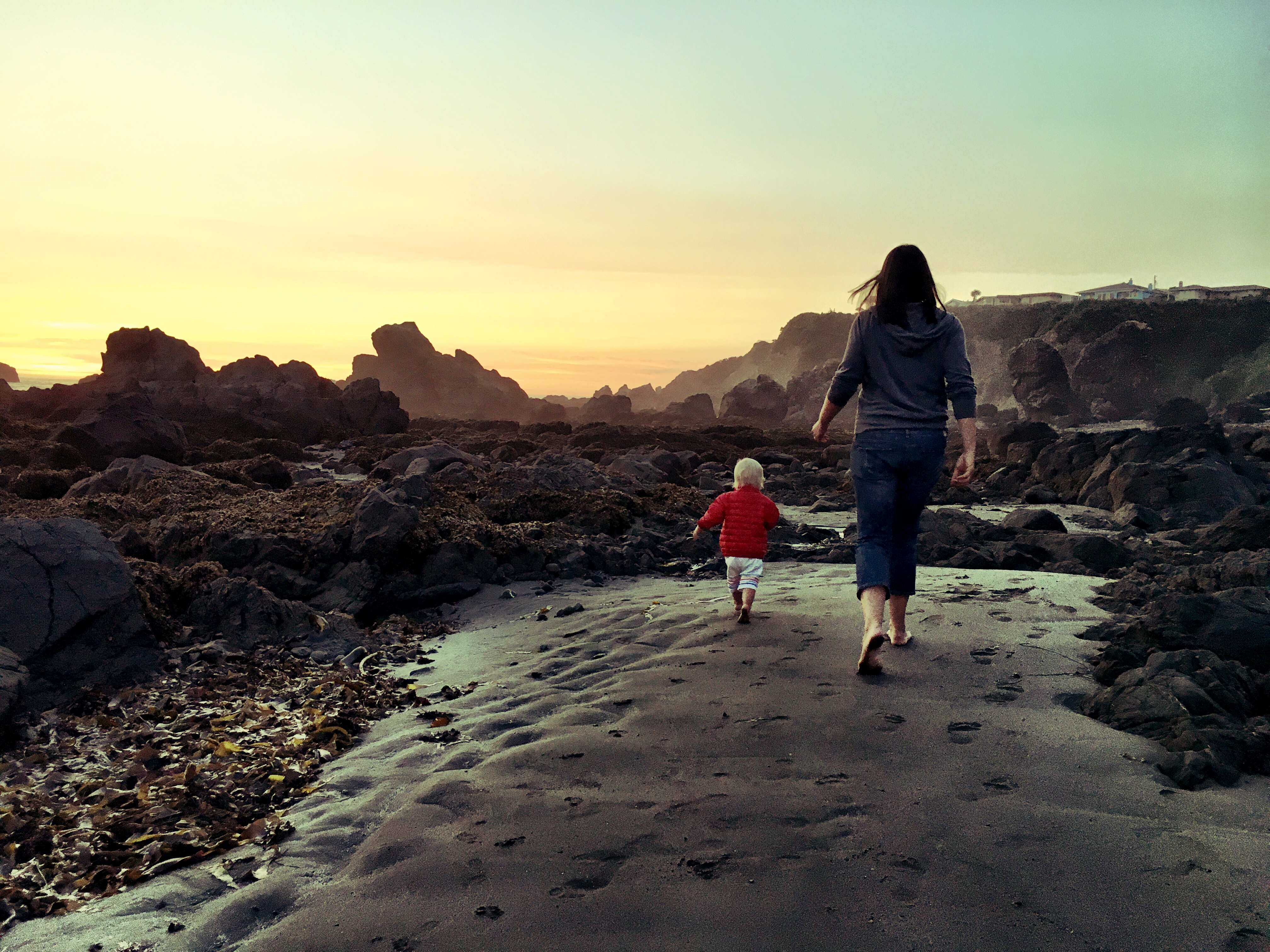Just a few months ago we created a new role here at the co-op: senior marketing program manager of our For All initiatives. It’s a role that informs and influences all aspects of marketing and consults with other divisions on topics of diversity, equity and inclusion. To find out more, we sat down with Nicole Browning, who occupies the role:
Define “For All.” Why is it important for REI?
“For All” is an affirmation of REI Co-op’s inclusive values and a truth we are working toward. We believe that a life outdoors is a life well lived for all, and that the outdoors has the potential to become the largest level playing field on earth.
Our work is about making it possible for everyone to live their best life in the outdoors, no matter who they are, where they live and play, or what inspired them to get outside in the first place. At the same time, we find ourselves at a watershed moment: The same divides and barriers that plague society can be found in the outdoors, and the perception persists that getting outside is a niche activity that is for some, but not for all.
Across many spectrums of diversity and communities, people have been doing awesome things outside for a long time, but when it comes to whether, where and how to tell their stories, our industry and media have continued to reinforce a definition of the outdoors that’s overwhelmingly white, male and achievement-oriented. Together with other factors, this has led us to a point where the experiences and voices of people who do not fit those descriptions have, at best, not been meaningfully included in the conversation—and at worst, have been silenced.
This isn’t good for individuals, communities, the health of our business or the outdoors. At REI, we believe we have the opportunity and responsibility to change this narrative as we work toward a reality where everyone belongs—in the outdoors and at the co-op. That’s why we’re working to challenge the conventional definition of who the outdoors is for and to shine a light on people and communities whose stories haven’t been fully explored, encouraged or told.
How does intersectionality play in your idea of For All?
While we’re all united in our love for the outdoors, our lived experiences and the degree to which we feel represented and welcomed outside can differ a lot based on the identities we carry with us, visible or not. REI has the power to remove barriers that keep people from getting the most out of their outdoor life, and also to celebrate all the great things that can happen when people have the chance to bring their full selves with them when they go outside.
What has REI done historically, as it relates to For All?
REI has invested in deep customer insights, employee training, national partnerships and innovative models for reaching new customers for well over a decade.
In 2010, there was a yearlong, cross-divisional workgroup that laid the foundation for what is today’s approach. More recently, we launched Force of Nature. This ongoing co-op-wide initiative is an embodiment of how we’re working to ensure that women—all women—are just as inspired and equipped as men are to embrace life outside. We put women front and center by addressing four key areas: changing the narrative through the stories we tell and the way we tell them; creating community through events and experiences; closing the gear gaps; and investing $1 million to create more opportunities for women and girls in the outdoors.
In the first year alone, Force of Nature directly touched over 48,000 women through 3,500 gatherings: hands-on classes, adventures and more. We learned that so many women have a strong desire to come together and build community, so we’re expanding and evolving those efforts moving forward through events like Outessa and Outessafest, as well as the more than 1,000 other events we offer that are designed by and for women.
When it comes to equity in gear and apparel, our Less Labels, More Sizes work is a key piece of the puzzle: We’re working to close the outdoor apparel gap for the nearly 70% of American women who wear a size 14 or larger. The first step of that has been learning from women about what they want and need. Next comes applying those lessons when working with our partner brands: to develop a wider range of clothing and gear that fits right and feels great; to design a more welcoming shopping experience; and to do an even better job of representing women of all sizes getting out there and getting it done.
Partnerships have been an essential piece as well. So much of this work is about relationships, and we have a long history of supporting change-makers working at the intersection of the outdoors and identity: Latino Outdoors, Outdoor Afro, Black Girls Do Bike, Black Girls RUN!, GirlTrek, She Ventures, Brown Girls Climb, Brothers of Climbing, LatinXHikers, Unlikely Hikers and more. Each of these partnerships looks a bit different, but all are oriented around building authentic relationships with organizations and communities in ways that help support their amazing work and also help us achieve our vision of getting more people outside.
Bringing voice to our values has always been foundational to what we do, so we’ve joined the conversation on issues—such as marriage equality, anti-LGBTQ legislation and immigration—that impact people’s ability to bring their full selves to work and to whatever it is they love to do outdoors. We’ve provided ongoing inclusion training for all employees as well as toolkits and other resources, such as our Men as Allies podcast and guidance for managers to support a more trans-inclusive work environment.
Finally, we’ve created amazing content that puts intersectionality into practice and highlights real members’ experiences and stories, such as The Mirnavator, Wild ideas worth living: Karen Ramos and Adriana Garcia, and Estamos aquí: Latino leadership in the outdoors.

Nicole Browning gets outside in her free time.
How does your For All role inform decision-making at REI?
While I’ll support many areas of the co-op in its efforts to build equitable and inclusive practices into its bodies of work, my primary areas of focus will be defining strategy for our Force of Nature initiative and developing opportunities to connect new audiences to the co-op through our For All marketing efforts. For example, even before I joined the team, I was thrilled to see the co-op participating in local Pride events throughout the country and supporting events like the 2017 LGBTQ Summit and annual HRC galas. As an REI member, I saw that work and felt so heard and seen by the co-op, but was also hopeful to learn what would come next—both events and beyond. So I couldn’t be more excited that a key piece of my role will be answering that question myself as I work to increase our reach and relevancy to LGBTQ people and many other audiences. Part of this will be partnering with other teams to gain insights around what our members, customers and employees need and want, what challenges they face, and how they want us to show up for them.
Additionally, I’ll help to drive ongoing education about For All topics that inform creative work, retail store experience, customer insights and more, so that teams can then take what they learn and weave it into the way they make decisions every day. The end goal of all this is to inspire more people to get out there and connect them with the gear, experiences and content that will help them have a great time outside.
How does the For All idea play into hiring processes, especially in leadership capacities?
For All shows up across the co-op through many complementary avenues, including bringing on and supporting great people. For example, we aspire to cultivate diverse candidate slates for all leadership positions. We’re working to support a more inclusive and welcoming environment through universal inclusion training for all co-op employees. We’re building internal competency around unconscious bias as it plays out in the language and images we use by providing trainings and resources that will help our teams approach their work using an equity lens. And looking forward, I’m excited about other approaches on the horizon that will support better outcomes for all of this work and prepare us to lean into what’s next.
We’re glad to see a groundswell of conversation across the industry around these issues, and the collective realization taking place that representation is only one piece of the puzzle. This is a big and complex challenge that needs us all to work together toward solutions. No single person or organization can resolve it on their own, and I’m looking forward (as an individual and in this new role) to supporting our partners and vendors in their own commitments to equity and inclusion.
How do members and customers give feedback?
Members and customers let us know how we’re doing by actively engaging in our social channels, talking directly with our gear experts in green vests, and emailing the many channels available to them on REI.com. We’re in constant communication with our partners as well, who all have extensive networks of REI members who regularly share their feedback and new ideas with us. Finally, we also create forums in the field, such as our Less Labels, More Sizes trunk shows and focus groups during events like Outessa.
How are we inviting our members and customers into the For All conversation?
As a member owned co-op, we’re guided by our values and our members, so centering their voice when it comes to these topics is essential. Currently we invite members and customers into the conversation through a combination of events, storytelling and opportunities with our partner organizations. We also look to our partners to help inform our For All approach as it relates to specific communities, and gather insights through member surveys and our Co-op Advisors program.
Together, all this helps us understand the identities and experiences that impact the ways in which people experience the outdoors, and what their wants and needs are when it comes to how we show up in the world.
Our goal is to create spaces where folks can come together in community around the identities, experiences or passions they share and talk about what matters to them—what’s hard, what’s great, what kind of outdoor life they want to have, what kind of world they want to live in. Ultimately, this will lead us to become a more healthy, relevant and sustainable co-op.
